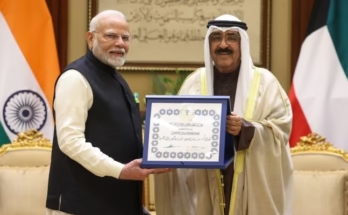
RNS: Aiming to restructure both school and higher education in India the Union Cabinet approved the New Education Policy, NEP 2020 on Wednesday.
Union Ministers for Information and Broadcasting (I&B) Prakash Javadekar and Human Resource Development (HRD) and Ramesh Pokhriyal Nishank, made the announcement on the NEP- 2020.
The new education policy is drafted by the committee lead by former Indian Space Research Organization (ISRO) chairman K Kasturirangan. The committee submitted its draft of the NEP in May 2019, to the Human Resource Development Minister Ramesh Pokhriyal Nishank.
The Policy focuses on: Bringing uniformity in education; Providing universal access to quality education and Improving the quality of elementary education through a new national curriculum.
Additionally, the policy also focuses on special emphasis on socially and economically disadvantaged groups such as SC/ STs. It proposed a separate “Gender Inclusion Fund” for such groups and Special Education Zones for disadvantaged regions. It sets a target of 100% adult youth and adult literacy by 2030 and both centre and states will increase public investment on education to 20% in the next 10 years.
It also proposes that every State/ District will be encouraged to establish Bal Bhavans where children of all ages may wish to go once a week or more often, as a special daytime boarding school, to partake in art-related, career-related, and play-related activities.
The NEP 2020 aims at making “India a global knowledge superpower”. The new academic session will begin in September-October – the delay is due to the unprecedented coronavirus disease (Covid-19) outbreak – and the government aims to introduce the policy before the new session kicks in.
The education policy which is currently in force in our country was formulated in the year 1986. It was revised in 1992.
The New Education Policy, NEP 2020 emphasises on the use of technology at both school and higher education levels. Here you will get to know the major changes implemented through the education policy 2020.
NEP 2020: Higher education
- One of the major reforms in higher education includes a target of 50% gross enrollment ratio by 2035 and provision for multiple entry/exit.
- In the multiple entries and exit system, a certificate will be given after the first year, diploma after the second year and degree after three-four years.
- MPhil courses will be discontinued under the new National Education Policy.
- There will be only one regulator authority for higher education in the country. It will have separate verticals for approval and finance. This regulator will work on ‘Online Self Disclosure Based Transparent System’.
- All higher educational institutions except law (law) and medical colleges will be run by the same authorities. There will be shared rules for private and public higher educational institutions.
- A four-year degree program can then do an MA and then a Ph.D. directly without an MPhil.
NEP 2020: School Education
- One of the National mission is to focus on basic literacy and basic numeracy.
- There will be major changes in the pedagogical structure of the curriculum with no rigid separation between streams.
- All separations between vocational and academic and curricular and extra-curricular studies will also be removed under the new education policy.
- Board exams will be low stakes and test actual knowledge instead of rote learning.
- Mother tongue to be the medium of instruction till 5th grade.
- Report cards will be a comprehensive report on skills and capabilities instead of just marks and statements



